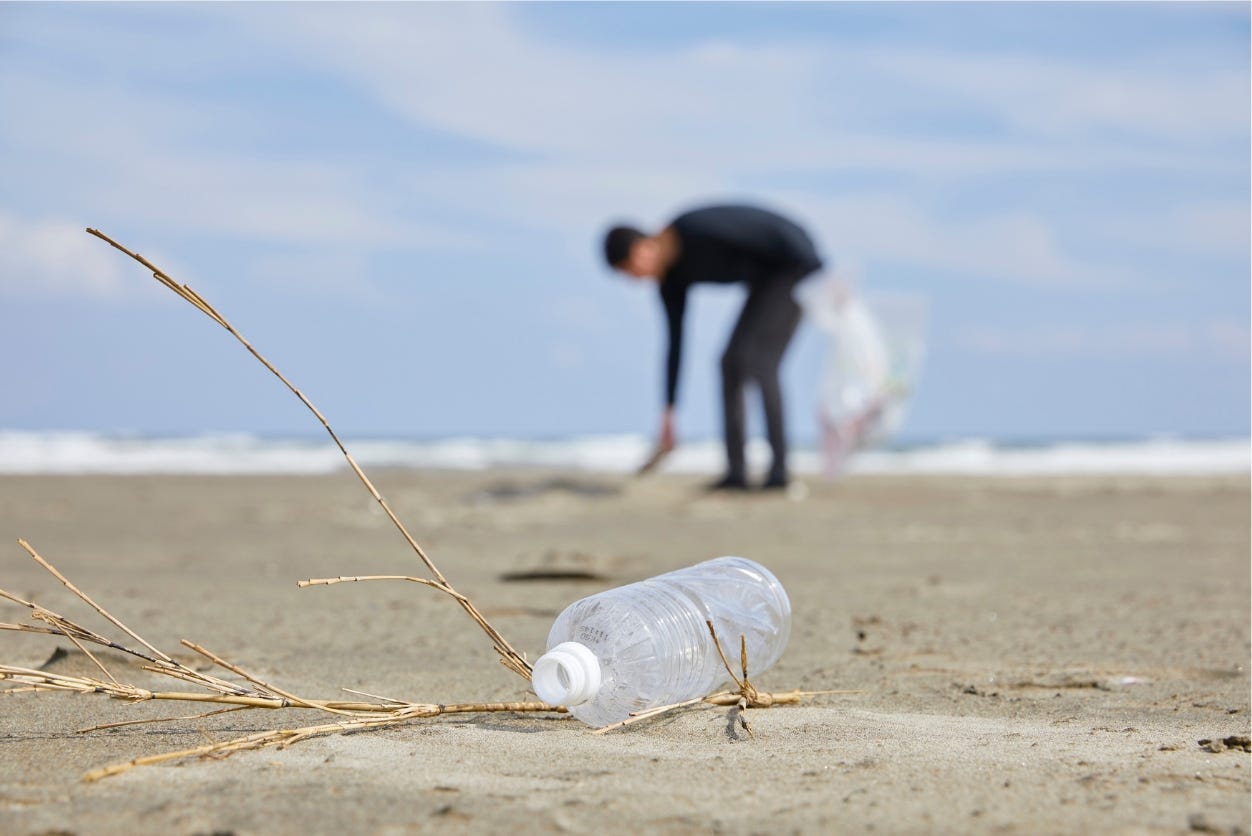Happy Friday!
Normally when I’m curating environmental good news stories, I try to cover a range of topics, from wildlife conservation to green energy. This week, however, many of the articles I found were about reducing plastic pollution — enough to make it a theme. The initiatives below just scratch the surface of what is being done, and what needs to be done — but keep in mind that these stories are all from the last week. It gives me hope to see the progress being made.
Let me know what you think!
Brett
Tofino is banning plastic water bottles
The District of Tofino, B.C. is the first municipality in Canada to ban the sale of single-use plastic water bottles one litre and under — with exceptions for bulk purchases and emergencies. The move comes after years of advocacy from the community and the Surfrider Foundation in response to plastic pollution on B.C.’s coastlines — with plastic bottles among the most littered items. Expanding on Tofino’s ban of single-use plastics like cutlery and foam containers, the regulation will take effect on April 22, 2026, coinciding with Earth Day.
Study shows that plastic bag bans work
A recent nationwide U.S. study found that locations with plastic bag bans or fees have up to 47% fewer plastic bags littering their shorelines than those without such policies. The study, which analyzed more than 45,000 shoreline cleanups, shows that the most effective policies are full bans or modest fees, while “partial bans” (like banning only thin bags) typically fail because consumers switch to thicker bags. The authors argue this is strong, real‑world evidence that plastic bag laws can meaningfully reduce plastic pollution and support the case for broader regulatory action.
Plants remove microplastics better than synthetic chemicals
Researchers at Tarleton State University have discovered that extracts from okra and fenugreek can trap up to 90 % of microplastics in water, outperforming synthetic chemicals commonly used in water treatment. Scientists soaked okra pods and fenugreek seeds overnight to extract polysaccharides — the substance that makes okra slimy when you cook it — and dried them into a powder form. In lab tests, one gram of extract per liter removed 67 % of microplastics (okra) to 93 % (fenugreek) of particles in an hour. Trials with real contaminated water from Texas showed similar results: okra worked well in ocean water (80 %), fenugreek in groundwater (80‑90 %), and a mix in freshwater (77 %). Because okra and fenugreek are easy to grow and their extracts break down naturally, they offer a cheaper and more sustainable alternative to synthetic treatments — which not only can be costly and inaccessible for some communities, but may also introduce harmful residues into the environment.
Canada’s federal government announced funding to reduce plastic pollution
On October 1, 2025, Canada’s federal government announced an investment of more than $3.4 million to support innovations aimed at reducing plastic pollution and waste. Through its Advancing a Circular Plastics Economy for Canada program, about $1.8 million will fund projects targeting sectors like health care, textiles, and construction. Projects include promoting reusable packaging in retail, collecting better data on plastic litter, and reducing waste in hospitals. An additional $1.6 million will support two projects via the Canadian Plastics Innovation Challenges: the development of a reusable sleeve to replace single‑use plastic pallet wrap and improved sorting methods for plastic films and flexible packaging.
India’s Durga Puja festival will be plastic-free
Five major Durga Puja committees in Kolkata have committed to running a waste‑free festival this year, replacing single‑use plastics with eco‑friendly alternatives, preventing litter, and ensuring all collected plastic is fully recycled. Working with the Indian Plastic Federation and NGOs, they’ll run awareness campaigns, deploy “plastic volunteers,” and place segregation bins at the festival sites. The initiative, part of EnGIO’s long‑standing Green Puja Award program, is being piloted at five prominent pandals. Organizers say the push is partly motivated by the recent city flooding, which highlighted how plastic waste exacerbates drainage and flooding.



